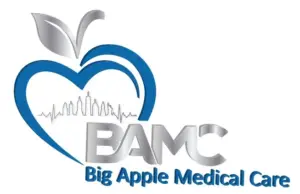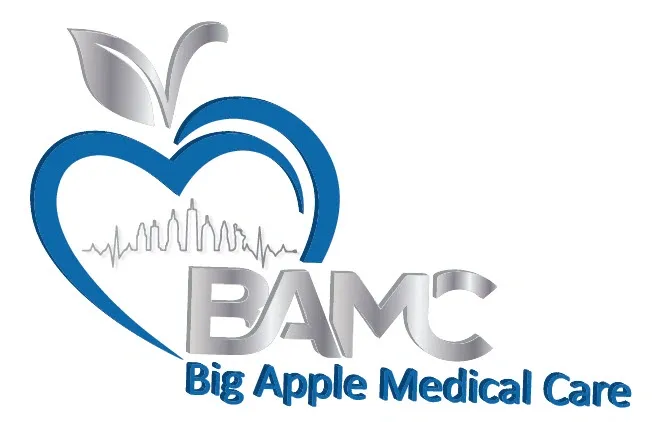Seasonal allergies can turn beautiful New York springs into months of discomfort. Sneezing, itchy eyes, and congestion make everyday life challenging. Fortunately, there are practical ways to reduce your exposure and manage symptoms effectively. At Big Apple Medical Care, we’re dedicated to helping you breathe easier. Let’s explore the top 7 ways to avoid seasonal allergies in New York and keep you feeling your best!
Understanding Seasonal Allergies
Seasonal allergies, also known as hay fever or allergic rhinitis, occur when your immune system reacts to allergens like pollen, mold, and dust. In New York, peak allergy seasons include:
- Spring (March – June): Tree pollen, including oak, maple, and birch.
- Summer (July – September): Grass pollen, such as ryegrass and bluegrass.
- Fall (September – November): Ragweed pollen, a common trigger.
Knowing what causes your allergies is the first step toward effective management.
7 Ways to Avoid Seasonal Allergies in New York
1. Monitor Pollen Counts
Keeping track of pollen levels helps you plan your outdoor activities accordingly. Use websites like Pollen.com or check local weather apps. On high-pollen days:
- Stay indoors, especially in the morning when pollen counts are highest.
- Wear sunglasses to protect your eyes.
- Close car windows when driving.
- Limit outdoor exercise to late afternoons or after rain.
2. Keep Windows Closed
Fresh air is great, but it brings pollen indoors. To reduce exposure:
- Use air conditioning instead of open windows.
- Install HEPA filters in your home to trap allergens.
- Clean window screens regularly to prevent pollen buildup.
- Use weather stripping to seal windows and doors against pollen infiltration.
3. Use an Air Purifier
Indoor air quality plays a crucial role in allergy management. Consider:
- HEPA filters to remove allergens from the air.
- Dehumidifiers to prevent mold growth.
- Regular vacuuming with a HEPA vacuum cleaner.
- Avoid using fans that may spread allergens.
4. Wear a Mask Outdoors
Protect yourself from allergens by wearing a high-quality mask, such as an N95 respirator. This is especially useful when:
- Gardening or mowing the lawn.
- Walking or exercising outdoors on high-pollen days.
- Traveling in areas with high allergen levels.
- Engaging in outdoor work that stirs up dust and pollen.
5. Shower and Change Clothes Frequently
Pollen sticks to your hair, skin, and clothing. To minimize exposure:
- Shower immediately after coming indoors.
- Change clothes to avoid transferring pollen to furniture.
- Wash bedding regularly in hot water to remove allergens.
- Avoid drying clothes outdoors where pollen can cling to fabrics.
6. Take Allergy Medications
Over-the-counter (OTC) and prescription medications can help relieve symptoms. Options include:
- Antihistamines: Reduce sneezing and itching (e.g., loratadine, cetirizine).
- Nasal sprays: Decrease inflammation (e.g., Flonase, Nasacort).
- Decongestants: Clear nasal passages (e.g., Sudafed, Afrin).
- Allergy shots (immunotherapy): Long-term solution for severe allergies.
7. Visit a Specialist
If your allergies are severe, consulting an allergy specialist at Big Apple Medical Care can provide:
- Allergy testing to identify specific triggers.
- Immunotherapy (allergy shots) for long-term relief.
- Personalized treatment plans based on your symptoms and lifestyle.
Lifestyle Adjustments for Allergy Prevention
- Maintain a healthy diet rich in vitamin C, omega-3 fatty acids, and probiotics.
- Hydrate well to thin mucus and reduce congestion.
- Exercise indoors on high-pollen days.
- Reduce stress, which can worsen allergy symptoms.
Home Remedies and Natural Solutions
- Local honey: May help build pollen resistance over time.
- Saline nasal rinses: Flush out allergens and clear nasal passages.
- Essential oils (e.g., eucalyptus, peppermint): Help open airways and reduce inflammation.
- Herbal teas (e.g., ginger, chamomile): Provide soothing relief.
When to Seek Medical Help
- If allergy symptoms interfere with daily activities.
- If over-the-counter medications are ineffective.
- If asthma symptoms develop, such as wheezing and shortness of breath.
- If recurrent sinus infections occur.
FAQs About Seasonal Allergies
What’s the best time of day to avoid pollen exposure?
Pollen levels are highest in the morning (5 AM – 10 AM). Try to stay indoors during these hours.
Can diet help reduce allergy symptoms?
Yes! Foods rich in vitamin C, quercetin, and omega-3s (e.g., citrus fruits, leafy greens, and salmon) may help reduce inflammation.
Are allergy shots worth it?
For individuals with severe allergies, immunotherapy can provide long-term relief by gradually desensitizing the immune system.
Do air purifiers really help with allergies?
Yes! HEPA air purifiers trap pollen, pet dander, and dust, improving indoor air quality and reducing allergy symptoms.
Can allergies turn into asthma?
Untreated allergies can lead to allergic asthma, causing wheezing, shortness of breath, and chest tightness. Early treatment is crucial.
How do I know if it’s allergies or a cold?
Allergies cause itchy eyes, sneezing, and clear nasal discharge. Colds usually involve a fever, body aches, and thick mucus.
Conclusion
Don’t let seasonal allergies control your life! Implement these strategies to reduce symptoms and improve quality of life. If you need expert help, visit Big Apple Medical Care.




